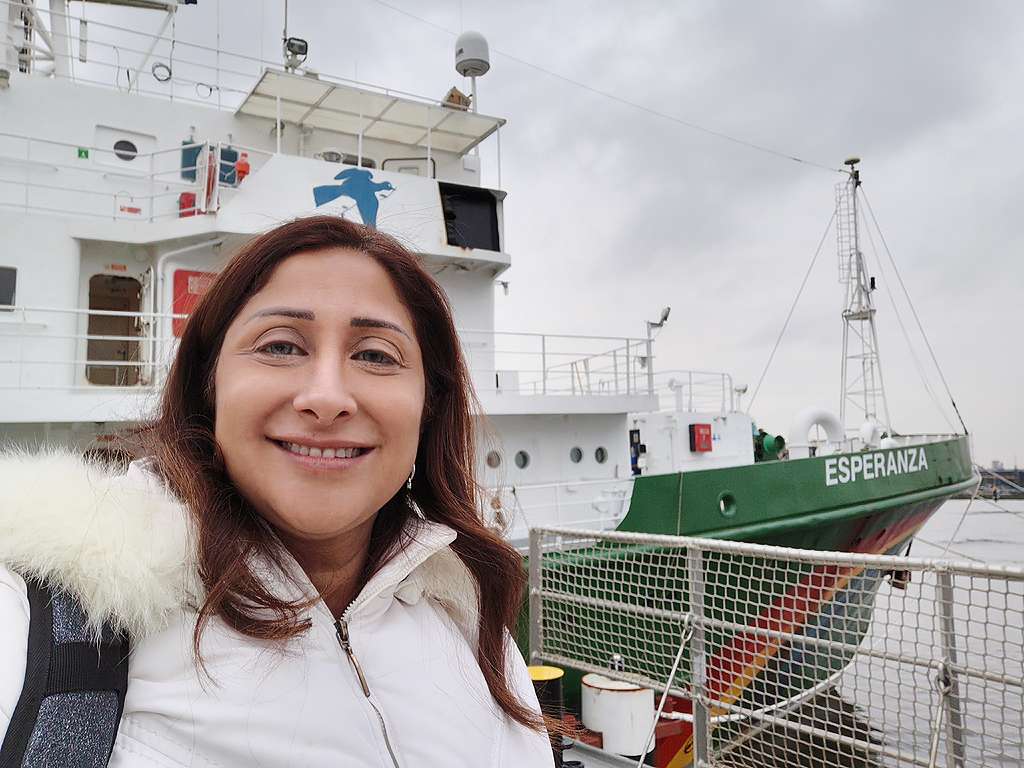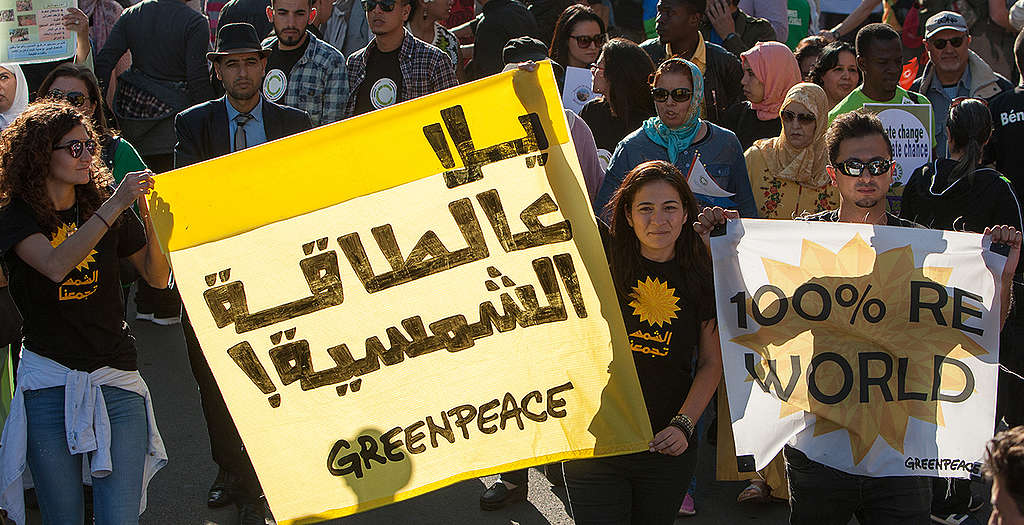
Executive Director – Greenpeace MENA
First of all, we would like to congratulate you on assuming your new role as minister, while recognizing the immense responsibilities of the Ministry of Energy and Water (MoEW), especially in the current circumstances: the State failing to provide electricity thus drowning the country in complete darkness, and citizens suffocating and going deaf due to the emissions and noise of random generators, that is if the fuel is available for them to operate.
Today, we send you this letter because we have hope in the Ministry’s capacity to accomplish real and tangible achievements in this sector that would effect systematic change and usher in a new era. The current energy crisis provides an opportunity to look for a clean, safe, and renewable alternative. An alternative which has become now more than ever, the clear and economically-feasible choice. It enables Lebanon to have control over the energy source because it is produced locally, without having to deplete the Treasury and public funds of reserves in US dollars.
The energy sector tops the list of polluting sectors in Lebanon, leading to massive adverse effects on public health and the economy, as demonstrated in scientific studies and reports, long-ignored in previous planning. According to a study published by Greenpeace in 2018, the estimated mortality rate and economic losses due to air pollution in Lebanon are among the highest in the MENA region.
Since the losses incurred by Electricité du Liban (estimated at 1-2 billion US dollars annually) are the biggest contributor to the colossal public debt and current economic crisis, investment in renewable energy is a necessity now more than ever, especially given the difficult access to fuel required to operate thermal power plants.
Nothing prevents Lebanon from quickly shifting to renewable energy sources on a larger scale. The country’s geography allows for it and developing economic factors favor the change to continuous investment in the fossil fuel model, which has grown more expensive than renewable energy in international markets and in communities that recognize its adverse effects in terms of pollution and consequences on health.
Investing and promoting a collective shift to solar power programs needs audacity, will and positivity at both the politically and community levels. We believe that Lebanese society is ready to embrace this challenge, in the aftermath of the pressing needs revealed in last year’s consecutives crises. We do not have to be seasoned financial, economic, and commercial experts to recognize the outcome of such a transformation. We only need vision and insight into the public interest of this generation and posterity.
A plethora of studies, including our own, has shown the need for laying renewable energy, namely, solar power, as the cornerstone of any plan seeking to develop or save the sector from this deep-rooted crisis in Lebanon. It is guaranteed to have far more direct and indirect benefits, than any new investment in the fossil fuel model for electricity generation.
The Lebanese Government has committed to cover 18% of demand on electricity with renewable energy by 2030. This commitment increases to 30% if conditional foreign funding is provided. The MoEW has committed to these figures. However, we are faced today with pressing developments forcing us not only to meet but rather exceed these thresholds. The current crisis in Lebanon has clearly revealed the pitfalls of relying on foreign entities to meet our needs in energy.
Therefore, it is necessary that the MoEW abandon all previous irresponsible plans and practices underpinned by short-term quick fixes to temporarily generate electricity, that have ultimately led us to where we are today.
Recommendations:
- Since the Minister’s current mandate is expected to be short-lived due to the Parliamentary Elections, it is our recommendation to build solid foundations for future cabinets. Setting a vision for the energy sector based on suitable and transparent consultations with all relevant stakeholders, including civil society and NGOs has to be a priority.
- To ensure continuity across ministerial terms, a key reform measure would be the establishment of an independent organizational body, based on Law no. 462 of 2002, with full prerogatives to issue licenses and set fees.
- The financial support to be acquired (such as the IMF program IMF SDRs estimated as 860 million US dollars) should not be spent on short-term solutions, as was the custom. It should be dedicated to fund sectoral reforms and sustainable solutions that would build solid foundations for the energy sector. For instance, funding a process to subsidize decentralized solar systems to reduce dependency on polluting diesel-operated generators, should be prioritized over subsidizing fuel oil. Another funding priority is upgrading the power grid.
- The MoEW should immediately complete negotiations and issue licenses for the 180 MW bid of 2020, a project seeking to build 12 solar power plants across the country.
- The submission of the Draft Law on Decentralized Renewable Energy and the Law on Energy Efficiency to Parliament should be a priority.
We must approach the current crisis as an opportunity to shed our usual practices that focus on short-term harmful and unsustainable band-aid solutions, and embrace sustainable transition in the electricity sector by shifting to renewable energy.
Ghiwa Nakat
Executive Director – Greenpeace MENA

Greenpeace has been protecting the environment for decades. We’ve stopped many crimes against the planet and held many corporations responsible for their actions. But there are always more scandals, more crimes and more destruction.

Discussion
Dear Ghiwa, I came across this again today, I hope you have observed some of the judicious recommendations you laid out in Yosuf open letter being implemented during the past couple of years… Look forward to doing more with everyone’s support and engagement. Thank you.